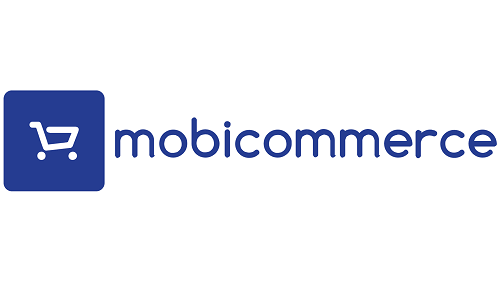Yes, multi-channel eCommerce software can be accessible from different devices and platforms. This implies that you may use the software on your computer, laptop, tablet, or smartphone, as well as on a variety of operating systems like Windows, Mac, and iOS. This enables you to manage your online sales and inventory from anywhere and at any time, making it more convenient and efficient for your company.
List of 20 Best Multi Channel eCommerce Software
EvenCart is a eCommerce solution built on the robust ASP.NET Core platform. Its hybrid design offers the flexibility to switch to a headless system seamlessly. Embrace the innovative features and customizable options of EvenCart to elevate your onlin...Read More EvenCart
Rezio is the premier online booking system for Attractions, Tours, and Activities companies in Asia. It provides a comprehensive platform for effortlessly selling tickets, tours, and experiences online and reaching a global market. With Rezio, busine...Read More Rezio
Nautical Commerce solution for retailers, brands, and B2B companies looking to create a multi-vendor online marketplace. Our platform simplifies the process of launching and expanding your marketplace, with convenient self-service tools for vendor si...Read More Nautical Commerce
Webnexs Headless is a ecommerce platform designed to streamline online retail businesses of all sizes. With its robust APIs and easy-to-use interface, merchants can seamlessly integrate and manage their ecommerce operations. Customizable features mak...Read More Webnexs Headless
SHOPLINE is e-commerce platform that helps retailers streamline their sales, marketing, and operations. Its extensive features, lightning-fast website performance, and integrated commerce solution empower retailers to achieve unprecedented growth. Wi...Read More SHOPLINE
MobiCommerce Multi-vendor Marketplace solution for B2B and B2C businesses. Our software caters to all types of ecommerce, including hyperlocal businesses and booking marketplaces. Elevate your online platform with our comprehensive package, designed...Read More MobiCommerce Multi-vendor Marketplace
Rierino - the leading micro-composable headless commerce platform designed for seamless integration with any business environment and technology stack. With its intelligent orchestration, unlock unparalleled flexibility and scalability, combined with...Read More Rierino
Seller Dynamics is the premier marketplace management software, designed to boost your sales and increase profits. This all-in-one solution includes cutting-edge capabilities like bulk listing, automated repricing, efficient order processing, and cen...Read More Seller Dynamics
e2m storefrontsolution for creating a mobile-friendly online store. Combining advanced technology and modern design, it provides a seamless shopping experience with Progressive Web Application capabilities and over 200 pre-designed components. Elevat...Read More e2m storefront
SellerExpress is a premier eCommerce management software that streamlines your online business operations. Its powerful features, including a centralized inventory system, automated pricing, and seamless integration with popular marketplaces, enable...Read More SellerExpress
GoDataFeed - solution designed to streamline and optimize the management of product data across multiple ecommerce channels. Through automation, keyword optimization, and error reduction, our platform helps boost product visibility and drive sales. W...Read More GoDataFeed
LogiView SaaS solution designed to enhance supply chain visibility, streamline inventory management, and facilitate electronic data exchange. Seamlessly monitor and manage your inventory with ease while receiving real-time alerts and in-depth analysi...Read More LogiView
Scantranx is a Android POS and E-Commerce software designed for Small and Medium enterprises. This innovative solution offers a seamless integration of offline and online sales channels, thanks to its cloud-based functionality. Simplify your business...Read More Scantranx
PartSpot - the pioneering B2B eCommerce platform designed by manufacturers, for manufacturers. Utilizing their bill-of-materials engineering data, PartSpot generates an all-inclusive eCatalog that simplifies the identification and ordering of parts f...Read More PartSpot
Vimmi, a e-commerce platform designed for efficient multichannel selling. Enhance your brands reach and drive sales with innovative features like shoppable video and live shopping. Seamlessly connect with your audience on popular platforms including...Read More Vimmi
Lead Commerce is a software solution designed to streamline inventory, warehouse, and order management for businesses. Its customizable features and user-friendly interface allow for efficient operations, increased visibility, and improved productivi...Read More Lead Commerce
Listing Mirror is a ecommerce platform that simplifies multi-channel product listings and inventory management for businesses. Our user-friendly software is packed with advanced tools, and our dedicated team provides exceptional support to help boost...Read More Listing Mirror
MapMyChannel by WebBee solution for seamless order management. This innovative software empowers you to take control of your sales process effortlessly. With its user-friendly interface, streamline your operations by efficiently managing all orders i...Read More MapMyChannel by WebBee
Thrive Retail is a software designed to empower businesses in navigating the dynamic retail landscape of 2021. With shifting consumer behaviors and market trends, it’s crucial for retailers to stay ahead of the competition. Thrive Retail offer...Read More Thrive Retail
DataFeedWatch is the go-to solution for maximizing your product feeds across multiple channels. With a successful history of catering to over 17,000 brands, it enhances e-commerce efficiency and eases marketplace administration with automated process...Read More DataFeedWatch
Learn More About Multi Channel eCommerce Software
- What Is Multi Channel Ecommerce Software?
- What Are The Recent Trends In Multi Channel Ecommerce Software?
- Benefits Of Using Multi Channel Ecommerce Software
- Important Factors To Consider While Purchasing Multi Channel Ecommerce Software?
- What Are The Key Features To Look For In Multi Channel Ecommerce Software?
- Why Do Businesses Need Multi Channel eCommerce Software?
- How Much Time Is Required To Implement Multi Channel Ecommerce Software?
- What Is The Level Of Customization Available In Multi Channel Ecommerce Software?
- Which Industries Can Benefit The Most From Multi Channel Ecommerce Software?
- Conclusion
What Is Multi Channel Ecommerce Software?
Multi Channel eCommerce Software is a sophisticated solution that enables businesses to sell their products and services over several online channels, such as marketplaces, social media platforms, and their own websites. It centralizes all areas of online retailing, including inventory management and order fulfillment, helping firms to reach a larger audience and increase sales.
At its core, Multi Channel eCommerce Software serves as a centralized center for organizing and synchronizing product listings, inventory levels, and orders across many channels. This removes the need for manual data entry and lowers the danger of overselling, resulting in a consistent client experience. It also provides a variety of services like as automatic pricing, marketing tools, and analytics to assist firms enhance their online sales approach.
One of the primary advantages of Multi Channel eCommerce Software is its ability to extend a company's reach beyond its own website. Businesses that integrate with popular marketplaces such as Amazon, eBay, and Walmart can reach a broader audience and exponentially increase their revenues. Furthermore, it supports seamless interaction with social media platforms, allowing businesses to sell directly to clients via social media posts and adverts.
Multi Channel eCommerce Software is a must-have tool for organizations wishing to establish or expand their eCommerce operations. It offers a unified platform for managing all areas of online sales, streamlining operations and improving efficiency. With the appropriate Multi Channel eCommerce Software, businesses can improve their online presence, reach more customers, and increase income.
What Are The Recent Trends In Multi Channel Ecommerce Software?
In recent years, the world of eCommerce has changed dramatically, with customers demanding a seamless and convenient buying experience across many platforms. This has resulted in an increase in the use of multi-channel eCommerce software, which enables businesses to offer their products and services across multiple web channels at once. So, what recent trends in multi-channel eCommerce software should purchasers be aware of?
Let's investigate.
1. Integration Of Social Media Platforms: With social media's rising influence on customer purchasing behavior, it has become critical for businesses to have a presence on numerous social media platforms. As a result, multi-channel eCommerce software now integrates seamlessly with prominent social media platforms like Facebook, Instagram, and Pinterest, allowing businesses to sell directly through these channels.
2. Omnichannel Experience: Today's shoppers want a consistent buying experience across all platforms. This means that customers should be able to begin their purchasing experience on one channel and continue on another without interruption. To fulfill this need, multichannel eCommerce software now provides an omnichannel experience, meaning that customer data is synced across all channels, resulting in a consistent and tailored experience.
3. Mobile Optimization: As more and more people prefer mobile devices for online purchasing, multi channel eCommerce software has responded by providing responsive and mobile-friendly designs. This means that businesses can reach their clients at any time and from any location, making purchasing more convenient and enjoyable.
4. Artificial Intelligence And Machine Learning: Advanced technologies such as artificial intelligence and machine learning enable multichannel eCommerce software to deliver personalized product suggestions and recommendations based on client behavior and preferences. This not only improves the shopping experience, but it also promotes revenue and client retention.
5. Inventory Management: Managing inventory across numerous channels may be a difficult chore for organizations. However, multichannel eCommerce software now includes powerful inventory management features that enable firms to track and update inventory in real time, assuring precise stock levels across all channels.
6. Analytics And Reporting: Data is essential for every organization, and multichannel eCommerce software today includes powerful analytics and reporting features that provide vital insights into customer behavior, sales success, and other metrics. This allows organizations to make more informed judgments and improve their entire strategy.
Benefits Of Using Multi Channel Ecommerce Software
Multi-channel eCommerce software is a strong tool that may help businesses grow their online presence and enhance revenue. It enables businesses to offer their products and services across numerous online platforms, including online marketplaces, social media, and their own website. With the rise of internet purchasing, maintaining a strong presence across numerous channels has become critical for businesses to remain competitive.
Here are some of the major advantages of adopting multi-channel eCommerce software.
1. Increased Reach: One of the most significant advantages of multi-channel eCommerce software is the greater visibility it provides for your products. By selling through numerous channels, firms can reach a larger audience and attract potential clients who might not have found them otherwise. This might result in huge increases in sales and revenue.
2. Improved Customer Experience: Businesses that use multi-channel eCommerce software can provide their customers with a more seamless buying experience. Customers can shop on their favorite platform, which could be a big marketplace like Amazon or a social media platform like Instagram. This allows customers to buy from anywhere they wish, boosting their happiness and probability of returning for subsequent transactions.
3. Improved Brand Visibility: Selling across different channels also helps to increase brand visibility and recognition. Businesses that are present on various platforms can expand their online presence and reach a bigger audience, resulting in enhanced brand awareness. This can also help the business gain trust and credibility, since customers are more likely to buy from a well-established brand with a strong presence across several platforms.
4. Streamlined Operations: Multi-channel eCommerce software enables firms to manage all sales and orders from a single location. This means that firms can simply monitor all of their orders, inventory levels, and sales performance across many channels. This improves operations by eliminating the need for manual data entry and tracking, saving time and money.
5. The Ability To Test And Experiment: Multi-channel eCommerce software also enables firms to test and experiment with various channels to see which ones are most effective for their items. This can help businesses uncover new opportunities and reach new audiences. It also allows them to make data-driven decisions based on the effectiveness of various channels, which leads to more efficient and effective marketing campaigns.
Important Factors To Consider While Purchasing Multi Channel Ecommerce Software?
As an online shop, diversifying your business into new channels is critical for development and profitability. With the emergence of multi-channel eCommerce software, it is now easier to manage and sell products across several platforms, giving a consistent experience for both you and your customers. However, not all multi-channel eCommerce software is made equal, therefore certain considerations must be considered before making a purchase.
Here are the most important considerations when selecting multi-channel eCommerce software.
1. Integration Capability: One of the most important aspects to consider when selecting multi-channel eCommerce software is its integration capabilities. Your software should work flawlessly with all of the sales channels you want to use, such as Amazon, eBay, and social media sites like Facebook and Instagram. Connecting all of your sales channels allows you to efficiently manage inventory, orders, and customer data from a single spot.
2. Order Management: Efficient order management is critical to every eCommerce firm. Your multi-channel eCommerce platform should include tools that allow you to track, process, and fulfill orders from all channels in one spot. Furthermore, it should deliver real-time inventory updates to avoid overselling and ensure fast order fulfillment.
3. Inventory Management: Keeping track of your inventory is critical for avoiding overselling, backorders, and dissatisfied consumers. Your multi-channel eCommerce platform should deliver real-time inventory updates across all sales channels, saving you the time and effort of manually checking and changing inventory levels.
4. Pricing Management: Different channels may necessitate different pricing strategies according to your target audience and competitive scenario. An excellent multi-channel eCommerce platform should enable you to manage separate price rules for each sales channel, maintaining consistency and efficiency in your overall pricing strategy.
5. Reporting And Analytics: To make informed business decisions, you must have access to reliable data and insights. Your multichannel eCommerce platform should have reporting and analytics tools for tracking sales, inventory, and consumer activity across all channels. This will allow you to find high-performing items, analyze client preferences, and make informed business decisions.
6. User-Friendly Interface: A confusing and intimidating interface can make it difficult to successfully manage your multichannel eCommerce business. Look for software with an easy-to-use interface, which reduces the learning curve and allows you to focus on expanding your business.
7. Customer Assistance: When selecting multi-channel eCommerce software, customer assistance is just as crucial as any other feature. Look for a service that provides rapid and effective customer support, whether via live chat, phone, or email, to assist you in resolving any issues swiftly.
What Are The Key Features To Look For In Multi Channel Ecommerce Software?
Multi Channel eCommerce Software is a strong tool that enables businesses to offer their products and services across many web channels. It provides a simple and efficient approach to managing sales and inventory across several platforms, including marketplaces, social media, and websites. When it comes to selecting the best Multi Channel eCommerce Software for your company, there are several crucial things to look for. These features not only improve your eCommerce experience, but also help you remain ahead of the competition.
Here are the top critical elements to consider when choosing a multi-channel eCommerce software:
1. Support For Different Sales Channels: The primary goal of Multi Channel eCommerce Software is to handle sales across multiple channels. As a result, it is critical to select software that is compatible with the platforms you use to sell your items. Whether you're using prominent marketplaces like Amazon or social media sites like Facebook and Instagram, be sure the software supports all of the channels you use to reach your customers.
2. Inventory Management: Monitoring inventory levels is critical for any eCommerce firm. Look for Multi Channel eCommerce Software with real-time inventory management to avoid overselling and stockouts. It should also allow you to configure automated inventory replenishment to ensure a consistent flow of products.
3. Order Processing: Another important factor to consider is the convenience of order processing. The software should provide a centralized dashboard that allows you to view and fulfill orders from all of your sales channels. This will save you time and prevent the trouble of moving between systems.
4. Product Listing: Creating and maintaining product listings can be time-consuming, especially if you sell through various channels. A solid Multi Channel eCommerce Software should allow you to generate and amend product listings in one location and instantly distribute them across all of your sales channels.
5. Integration With Shipping And Fulfillment Services: To ensure a smooth and effective eCommerce experience, select software that integrates with popular shipping and fulfillment services. This allows you to automate shipping processes and offer real-time tracking to your consumers.
6. Reporting And Analytics: The software should include comprehensive reporting and analytics features that allow you to track sales, inventory, and consumer activity across all channels. These insights will allow you to make more informed decisions and highlight areas for development.
7. SEO Optimization: SEO is critical for increasing traffic to your online store. Make sure you choose Multi Channel eCommerce Software that helps you to optimize your product listings and content for search engines. This will help you rank better in search results and enhance your visibility among potential clients. By taking these crucial aspects into account, you can select the best Multi Channel eCommerce Software for your company's needs and to maximize your online sales. To make an informed selection, conduct thorough study and analyze many choices.
Why Do Businesses Need Multi Channel eCommerce Software?
In today's world of online buying, having a strong eCommerce presence is critical for businesses to thrive. However, merely having a website is no longer enough; consumers now make purchases through a variety of channels, including social media, online marketplaces, and mobile applications. This is where multichannel eCommerce software comes into play. Multi-channel eCommerce software enables firms to sell their items across several platforms, all from a single system. This not only speeds the process, but also broadens their prospective consumer base.
Here are the main reasons why organizations want multi-channel eCommerce software:
1. Increased Exposure And Reach: Selling across numerous channels allows firms to reach a bigger audience, enhancing their visibility and sales potential. Businesses with a strong presence across many platforms can reach a wider range of demographics and target audiences, resulting in a higher conversion rate.
2. Centralized Management: With multi-channel eCommerce software, businesses can manage all of their channels in one location, eliminating the need to log into each platform separately. This saves time and effort, allowing businesses to concentrate on other areas of their operations.
3. Increased Sales Opportunities: Multi-channel eCommerce software allows firms to diversify their sales channels while reducing dependency on a single platform. This decreases the risk of income loss due to technical faults or regulation changes on a certain platform, while also opening up new sales opportunities.
4. Improved Brand Consistency: Multi-channel eCommerce software helps firms maintain a consistent brand image and messaging across all channels. This offers a consistent consumer experience and promotes brand loyalty.
5. Integration With Logistics And Inventory Management: Multi-channel eCommerce software frequently includes tools for integrating with logistics and inventory management systems. This enables firms to efficiently manage their inventory, orders, and shipping procedures across all channels.
How Much Time Is Required To Implement Multi Channel Ecommerce Software?
The time necessary to integrate multi-channel eCommerce software varies based on the program chosen, the size and complexity of your organization, and the level of customization required. On average, it takes between a few weeks and several months to properly integrate multichannel eCommerce software. The first step in adopting multi-channel eCommerce software is to conduct research and choose a solution that best meets your company's requirements.
Depending on the extent of your study, this could take anywhere from a few days to a few weeks. Once you've decided on a software, the next step is to set it up and customize it to meet your company's requirements. This can include creating channels, integrating with your existing systems, and modifying the design and layout. This procedure may take several weeks, depending on the intricacy of your business and the amount of customization required.
The final step in the implementation process is to test the software and ensure that everything works properly. This can take a few days to a few weeks, depending on the size of your company and the level of testing required. Implementing multi-channel eCommerce software can take between 4-6 weeks for smaller firms and several months for larger businesses with more complicated requirements. To achieve a seamless and timely deployment, you must first understand your company's requirements and then collaborate closely with the software vendor.
What Is The Level Of Customization Available In Multi Channel Ecommerce Software?
In the world of eCommerce, having a presence across many platforms is critical for reaching a larger audience and increasing sales. Multi channel eCommerce software is a sophisticated tool that enables businesses to manage their online presence across multiple channels, such as marketplaces, social media platforms, and their own website. When selecting a multi channel eCommerce platform, one crucial factor to consider is the level of customisation available.
The extent of customisation varies significantly depending on the software provider. Some software may provide a limited number of pre-designed templates and layouts, but others may allow for more extensive customization, including the ability to create unique designs and functionality from scratch. Before making a decision, you should evaluate your company's specific demands and goals. If you're just starting off, a simple amount of customization may be enough.
However, if you are an established business looking to increase your online presence, a product with more advanced customization possibilities may be ideal. Customization encompasses not just the appearance and layout of your online channels, but also the software's features and capabilities. Some platforms may offer a fixed set of functionality, but others allow for a more flexible approach in which you can choose and tailor the elements that are most relevant to your business needs.
It is also worth noting that customisation in multichannel eCommerce software may necessitate technological expertise. As a result, it is critical to select software that allows for easy customization and delivers dependable customer support. Overall, the level of customization offered by multi channel eCommerce software varies and should be carefully assessed based on your company's specific demands and goals. With the appropriate software, you can provide your clients a seamless and personalized purchasing experience while successfully managing your online presence across different channels.
Which Industries Can Benefit The Most From Multi Channel Ecommerce Software?
Multi Channel eCommerce Software is quickly gaining popularity in the business sector since it provides a comprehensive solution for managing numerous sales channels, such as online marketplaces, social media platforms, and brick-and-mortar stores, all from one platform.
This powerful software has the ability to significantly assist organizations of all sizes, but particular industries stand to benefit even more from its implementation.
1. Retail And E-Commerce: The retail and e-commerce industries are the obvious candidates for implementing Multi Channel eCommerce Software. With the growing popularity of online shopping, businesses in this field must have a presence on several platforms to reach a larger audience. Multi Channel eCommerce Software enables companies to manage inventory, orders, and listings across several channels, resulting in a unified shopping experience for customers.
2. Consumer Goods: Consumer products firms, such as FMCG brands, are continuously looking for new and effective ways to contact their target audiences. Multi Channel eCommerce Software can help these businesses expand their reach by selling their items over several e-commerce channels, resulting in increased sales and market share.
3. Wholesalers And Distributors: Multi Channel eCommerce Software is also extremely beneficial for wholesalers and distributors who offer products to many shops. This software can simplify the process of processing orders from several merchants and marketplaces, allowing wholesalers to fulfill bulk orders and maintain track of inventory levels.
4. Hospitality And Tourism: The hospitality and tourism industries can also benefit significantly from Multi Channel eCommerce Software. This software allows hotel chains, travel agencies, and tour operators to manage bookings and reservations across many channels, including their own website, online travel agencies, and travel markets.
5. Vehicles And Car Parts: The automobile business can also benefit from Multi Channel eCommerce Software by selling their products and services over several online markets and platforms. This software can help them streamline inventory management, order processing, and delivery, resulting in a more convenient shopping experience for their customers.
Conclusion
After reviewing the different characteristics and benefits of multi-channel eCommerce software, it is evident that this type of software is required for success in today's retail landscape. With the growing popularity of online shopping and the proliferation of marketplaces and channels, having a strong and effective multi-channel eCommerce solution is critical for businesses of all kinds.
From managing inventory and orders across several sales channels to delivering a unified shopping experience for customers, multi-channel eCommerce software has numerous advantages that can greatly improve a company's operations and bottom line. With the capacity to reach a wider audience and enhance sales, this software has become a must-have for any company wanting to remain competitive in the fast changing eCommerce industry.
When searching for the best multi-channel eCommerce software for your company, keep the characteristics listed in this buyer's guide in mind and select a solution that best meets your individual requirements and budget. It is critical to choose software that is easy to integrate with your existing systems, delivers thorough analytics and reporting, and gives specialized customer support. Furthermore, keep your business goals and expansion plans in mind when selecting a decision. Investing in multi-channel eCommerce software that can grow with your company can save you time and money in the long term.
Finally, selecting the correct multi-channel eCommerce software can have a huge impact on your company's performance and growth. With the features and benefits outlined in this buyer's guide, you can make an informed selection and select software that will not only improve your operations but also propel your company to new heights. So, conduct extensive study, weigh all choices, and make the best decision for your organization.
Multi Channel eCommerce Software FAQ's
Can Multi Channel Ecommerce Software Be Accessed Across Multiple Devices And Platforms?
Is Multi Channel Ecommerce Software Future-Proof And Adaptable To Emerging Technologies Like AI, Blockchain Or IoT?
Multi Channel eCommerce Software is always growing to stay up with the ever changing technological landscape. As AI, blockchain, and IoT become increasingly common in the eCommerce business, these capabilities are likely to be integrated into multi-channel software in the future.
This would enable firms to optimise their operations and offer clients a seamless purchasing experience across several channels. So, yes, multi-channel eCommerce software is future-proof and adaptive to emerging technology, allowing firms to stay ahead of the competition.
Is There A Free Trial Offered To Assess Multi Channel Ecommerce Software Before Committing?
Yes, many multi-channel eCommerce software suppliers provide a free trial period so that potential clients can test the product before committing to a subscription. This allows customers to test the software's features, functionality, and usability before making a purchase commitment. It is advised to take advantage of free trials to confirm that the software suits your business requirements.
Does Multi Channel Ecommerce Software Offer Data Security Features And Meet Regulatory Compliance Standards?
Yes, Multi Channel eCommerce Software includes strong data security safeguards to safeguard critical information including client data and payment information. It also assures compliance with regulatory requirements like as GDPR, PCI, and HIPAA. This includes encryption technology, secure data storage, and timely security updates. With Multi Channel eCommerce Software, you can be confident that your company is following all applicable regulations and protecting your data.
Can Multi Channel Ecommerce Software Integrate Seamlessly With Existing Tools And Platforms?
Yes, Multi Channel eCommerce Software can smoothly interact with existing tools and platforms, allowing businesses to better manage their online presence. With interfaces to prominent platforms such as Amazon, eBay, and Shopify, you can simply synchronize your inventory, sales, and customer data across several channels. This streamlines operations by eliminating the need for human data entry, saving time and lowering the chance of error.






















